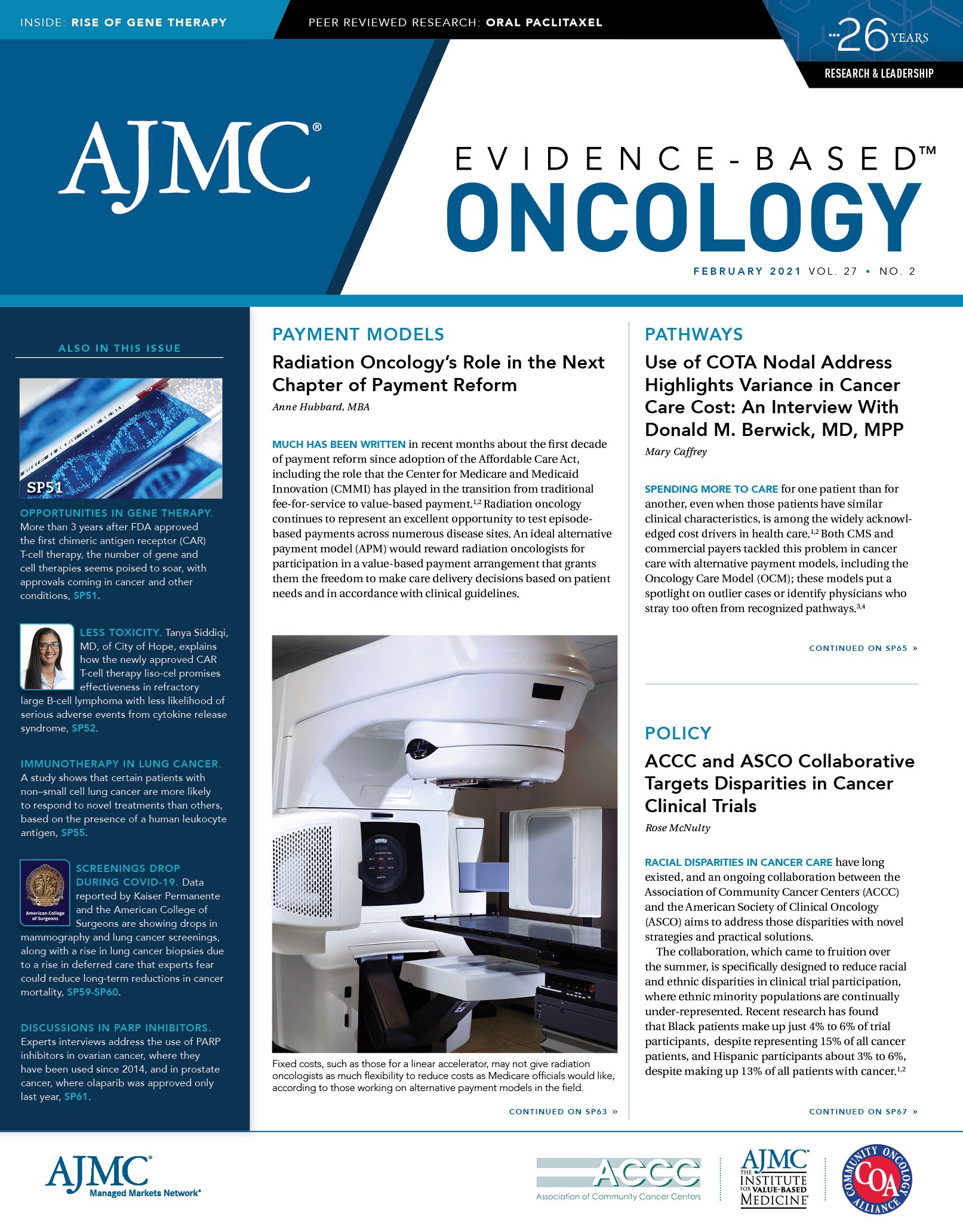- Center on Health Equity & Access
- Clinical
- Health Care Cost
- Health Care Delivery
- Insurance
- Policy
- Technology
- Value-Based Care
As Mammography Screenings Drop, Advanced Breast Cancer Cases Increase in First Months of COVID-19
The study, presented at the 2020 San Antonio Breast Cancer Symposium, also found that time to first treatment dropped during this period of the coronavirus disease 2019 (COVID-19) pandemic.
In the first few months of the coronavirus disease 2019 (COVID-19) pandemic, mammography screenings dropped drastically and patients with breast cancer presented with more advanced and aggressive disease, according to study findings presented at the 2020 San Antonio Breast Cancer Symposium.
The retrospective, double-cohort study observed patients visiting the Kaiser Permanente health care system, comparing those who visited the health system between March 17 and May 18, 2020—during California’s shelter-in-place period—to those who visited the health system between March and May 2019.
“The COVID-19 pandemic drove operational changes in Kaiser Permanente California,” said Annie Tang, MD, researcher at Kaiser Permanente Northern California’s Permanente Medical Group Breast Research Collaborative. She said that on March 17, 2020, when the California shelter-in-place order was initiated, “Breast cancer guidelines were developed within our large integrated health care system of 22 hospitals, all outreach for mammography screenings were held, but women who wished to have screening were still accommodated, elective surgeries were stopped, and cancer surgeries were continued.”
There were 703 patients with newly diagnosed disease identified in the 2019 period, compared with 250 during the shelter-in-place period, representing a 64% drop in the number of patients who received a diagnosis and potentially highlighting that there were 453 patients who had undiagnosed disease during this time, Tang said.
Both groups of patients had similar baseline characteristics, although there were significantly more patients in the 2020 period who presented with symptomatic disease (78% vs 37%) and presented with more advanced disease, as measured by >T1c tumors (78% vs 64%; P < .001), positive nodal status (24% vs 18%; P = .07), and metastatic disease (7% vs 2%; P = .002).
Patients in 2020 also had tumors of more aggressive receptor subtypes. More patients in 2020 had hormone receptor-positive (HR+)/human epidermal growth factor receptor 2-positive (HER2+) disease (13% vs 9%) and HR-negative (HR-)/HER2-negative (HER2-) disease (16% vs 10%), while they had less HR+/HER2- disease (66% vs 76%) and less HR-/HER2+ disease (4% vs 5%).
“As screening mammography rates return to prepandemic levels, our system must prepare for a likely surge of new breast cancer diagnoses,” Tang said. “We will continue to monitor breast cancer screening rates, breast cancer diagnosis, and treatment trends for future research.”
Although the majority of initial treatment was surgery for both 2020 and 2019, the percentage of patients getting surgery decreased in 2020 (71% vs 83%) as the percentage of patients getting chemotherapy as initial treatment increased (15% vs 10%). More patients also underwent neoadjuvant hormone therapy in 2020 (5% vs 0%).
Notably, the time to first treatment was shorter in 2020, with time to surgery dropping from 26 to 19 days and time to chemotherapy dropping from 28 to 24 days.
Reference
1. Chang S, Savitz A, Vuong B, et al. Characterization of breast cancer management during the COVID 19 pandemic in a large integrated healthcare delivery system: Stage at diagnosis and timing/modality of first treatment. Presented at: San Antonio Breast Cancer Symposium; December 8-11, 2020. Abstract SS2-06. https://www.abstractsonline.com/pp8/#!/9223/presentation/704

